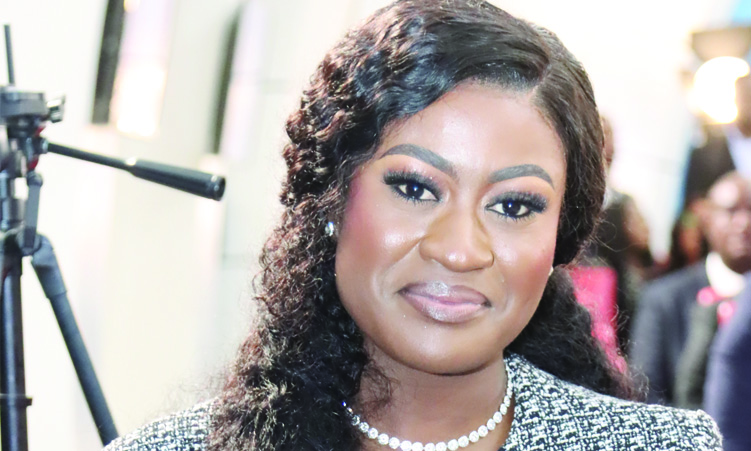The concept of state failure has gained significant attention globally, particularly in assessing the governance and stability of nations.
While Namibia is generally regarded as a peaceful and stable democracy, it is essential to critically evaluate its performance against the benchmarks of state functionality.
This article looks at the definition of state failure, explores factors that could contribute to it, assesses Namibia’s position and offers recommendations for improvement.
WHAT DOES IT MEAN?
State failure refers to a government’s inability to perform its core functions, such as ensuring security, providing basic services, maintaining legitimate governance and upholding the rule of law.
According to author Robert Rotberg (2004), a failed state is characterised by the loss of monopoly over the legitimate use of force, inability to provide public goods, widespread corruption and weakened institutions.
Failed states often experience high levels of social unrest, economic collapse and loss of public trust in governance.
The Fragile States Index (FSI), compiled annually by the Fund for Peace, is one of the most widely used tools for assessing state fragility.
It evaluates states based on indicators such as economic inequality, political stability, social cohesion and public service delivery.
Countries that score poorly are classified as “fragile” or “failing”.
Since gaining independence in 1990, Namibia has made notable strides in political stability and democratic governance.
However, the lingering effects of colonialism and apartheid have left a legacy of economic inequality and land dispossession.
Compared to its neighbours, Namibia stands out for its peaceful elections and environmental policies but it lags in addressing unemployment and corruption.
Botswana, for instance, has leveraged its mining wealth for more effective public service delivery, while South Africa faces similar inequality challenges but has a more diversified economy.
KEY RANKINGS
Namibia has consistently demonstrated strong democratic governance.
However, there are emerging challenges that raise questions about the country’s long-term effectiveness as a state.
- Economic Inequality
Namibia has one of the highest levels of income inequality globally, with a Gini coefficient of 0.591 as of 2021 (World Bank, 2023).
This disparity undermines social cohesion and perpetuates poverty, particularly in rural areas. Unemployment, put at 33% in 2022, disproportionately affects the youth, creating frustration. - Corruption and Governance
Corruption is a growing concern. High profile scandals, such as the ‘Fishrot’ case, have eroded public trust in government institutions and exposed weaknesses in transparency and accountability.
According to Transparency International’s Corruption Perceptions Index (CPI), Namibia scored 49/100 in 2023, indicating moderate corruption that requires urgent attention. - Institutional Decay
Institutions are the backbone of state functionality and Namibia has relatively strong institutions compared to its regional counterparts.
However, challenges such as underfunded public services, delays in judicial processes and land reform inefficiencies threaten to weaken the state’s ability to deliver effectively. - Social Tensions
Namibia has experienced periodic protests over economic conditions, unemployment and gender-based violence. While not at crisis level, they reflect underlying societal frustrations.
- Infrastructure and Public Services
Access to basic services such as water, electricity and healthcare remains unequal. Water scarcity persists in rural areas, exacerbated by drought and poor infrastructure.
NamWater has often faced criticism for delays in addressing water shortages, further highlighting public service delivery challenges. - Climate Change and Environmental Vulnerabilities
Namibia’s dependence on natural resources and its arid climate make it particularly vulnerable to climate change.
Prolonged droughts have exacerbated water shortages and negatively affected agriculture, which employs many rural residents.
Without significant investment in water infrastructure and climate adaptation, these challenges could deepen existing inequalities.
CAN WE IMPROVE OUR RESILIENCE?
The FSI 2023 ranks Namibia in the ‘stable’ category, reflecting its overall resilience.
However, its scores in indicators such as economic inequality, demographic pressures, and public services suggest areas for improvement (Fund for Peace, 2024).
To address its vulnerabilities, Namibia should consider the following:
- ª Promoting diversification beyond mining by investing in agriculture, renewable energy and technology. Support for SMEs and youth entrepreneurship can help reduce unemployment.
- • Strengthening legal frameworks to prosecute corruption and ensure transparency in public procurement. Public awareness campaigns can foster accountability.
- • Focusing on vocational training and digital skills to prepare youth for emerging industries.
- • Investing in sustainable water infrastructure, renewable energy and climate-resilient agriculture to mitigate environmental vulnerabilities.
- • Empowering regional governments to address local challenges more effectively, reducing reliance on central government resources.
- • Encouraging partnerships between the government, private sector and civil society to address key issues collaboratively.
IT’S UP TO US
In terms of definition, Namibia is far from being a failed state. It continues to maintain political stability, relative peace and functional governance structures.
However, economic inequality and corruption underscore the need for proactive measures to strengthen state resilience.
Namibia is not a failed state but it faces vulnerabilities that could threaten its stability if left unaddressed.
Addressing economic disparities, enhancing transparency and accountability, improving service delivery and preparing for climate impacts are crucial steps.
With targeted reforms and inclusive governance, Namibia can maintain its reputation as a stable and peaceful democracy.
- • Lot Ndamanomhata is a graduate of public management, journalism and communication. This article is written entirely in his personal capacity.
Stay informed with The Namibian – your source for credible journalism. Get in-depth reporting and opinions for
only N$85 a month. Invest in journalism, invest in democracy –
Subscribe Now!










